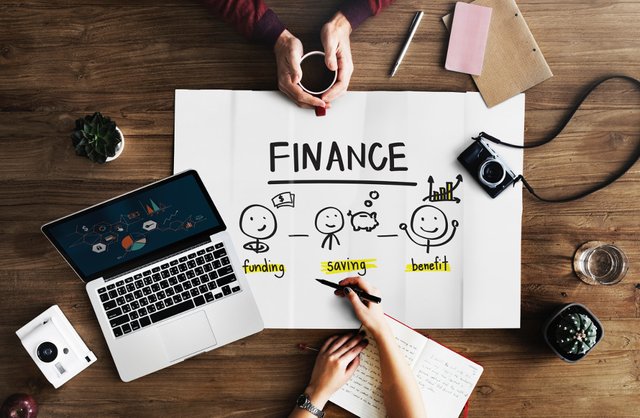Something that stuck with me on my favourite author, James Altucher and that I've noticed with other successful people is that in an attempt to completely master and dominate a field of study, they will seek out every resource they can in that field (all the books, all the courses, all the videos, everything ever developed for that subject) and absorb it. And right now, I'm at a point in my life where I would like to focus on my finances - which is why I picked up The Millionaire Teacher by Andrew Hallam (I want to learn everything there is to know about finances, building wealth and generating another passive income source, i.e., investments).

The Millionaire Teacher is written in fairly straightforward language and its advice is also straightforward - just because you look rich, drive an expensive car, live in an expensive home, etc. - it does not make you wealthy. Here's some of my key takeaways from the book and I'll end with how I will apply these to my life:
What is wealth?
Wealth, as defined by Andrew, is two things:
- Never having to work for the rest of your life, if you choose not to
- Generating enough passive income (through investments, etc.) that generate more than twice the median income of where you are for your life time
A simple rule for creating wealth
Spend less than you make. Save aggressively. The investments and returns come from having a very large 'nut' (Sam of the Financial Samurai's words, not mine). Even with small pay checks and possibly debt, you can still save money, even if it's only a few dollars a month.
Invest in index funds and bonds
Why invest in index funds? Only the top financial portfolio managers have consistently beaten index funds but those portfolio managers only manage those that are extremely wealthy. What are the chances that your average mutual fund manager will beat the returns of index funds? I don't really want to find out.
Why invest in bonds? Bonds are your 'conservative' investments.
How do you balance your portfolio? Andrew has a simple rule that he follows: invest in equal amounts both index funds and bonds. At the end of the year, if you have more in bonds than in index funds, sell some bonds and invest in some index funds and vice versa if you have more in index funds than in bonds.
Region-specific index funds
Andrew suggests a number of region-specific index funds and investment platforms to look at. Given that I'm based in Canada, I looked at the Canadian information and it matched a few of the investment platforms I have already looked at / invested in such as WealthBar. I did not know this but TD also has an index fund that Canadians can invest in and it has extremely low fees but I don't know very much about this platform as I'm not invested in it myself.
Get help
You certainly don't have to invest on your own. Yes, you'll have to come up with your own money but there are lots of bloggers and other resources available to help you find the particular investment platforms / vehicles that are right for you to invest in. There are also lots of great tools out there (web apps, smartphone apps, financial spreadsheets) that will help you manage and track your expenses and determine how best to cut costs and save money.
Avoid the trends / rumours / seduction
You may have heard friends talk about investing in gold or cryptocurrency or penny stocks. Just stick to your guns - invest in index funds and bonds and regularly invest money into these two vehicles and you will do just fine. Sure, your friends might hit it big with a penny stock here and there or buy a cryptocurrency that is worth thousands of dollars in a few years but these investments are very risky - you are just a moment away from losing a lot of money and what you don't want to do is lose any money. The very best investment firms are the very best because when the market is down, they lose very little money. If you think about it, if you invest $100 and you lose $50, you have to not just get a 50% return but a 100% return on your money in order to get back to your starting point (you have to make $50 + $50 to get back to $100, i.e., your original investment). And when the markets are down, this represents a great opportunity for you to buy 'low' through index funds as inevitably, all of them will rise up again.
Okay, enough about the book, what specific things have I done after reading this and other financial books?
- I have investments in WealthSimple, Questrade, WealthBar, as well as TFSA's and RSPs with my bank
- I diligently track my expenses through Mint and review them on a monthly basis to identify errant charges or fees and get those refunded right away (I have a process for getting back any bank fees that are charged)
- I spend at least 30 days thinking about any purchase that is more than $30 - this is so that I can do sufficient research and to avoid impulse buying something
- I set up automatic investments from my bank account so that I invest first and then spend what I have remaining (i.e., I pay myself first)
- I try to have a diversified portfolio (or as much as I can anyway) to reduce the risk of my whole portfolio imploding on me
- During 'downturns' in the market, I'll invest additional money into the index funds to take advantage of the 'low cost' of stocks